Such Stuff as Dreams are Made On: Shakespeare and SciFi
As Redstone goes to press (or is it to post?) this month, I’m halfway through hearing seven plays in seven days at the Oregon Shakespeare Festival. I must admit up front that I’m a huge bardophile. I’ve made the sacred pilgrimage to the Birthplace at Stratford, I’ve been a “groundling” in London’s reconstructed Globe, and I “made a scene” for the Folger Shakespeare Library. I *might* even like Shakespeare more than science fiction. But fortunately I don’t have to choose which of them is my favorite, since there’s quite a bit of overlap. Scifi, in fact, draws a great deal from the playwright whom Ben Jonson said was “not of an age, but for all time.”
“The heavens speed thee in thine Enterprise!” (Julius Caesar III.i)
Take, for example, Star Trek (in all its incarnations). It’s obvious that many of the series writers drew inspiration from the Bard. Characters (especially Kirk) often quote William Shakespeare, and episodes sometimes self-consciously follow the plotlines of some of Shakespeare’s plays. The best example is the “The Conscience of the King,” in which Kirk’s overly-cautious attempts to discover a suspected mass-murderer evoke the indecisive Hamlet’s attempts to prove his uncle’s guilt. The episode even includes a traveling troupe of players who act out part of Hamlet as a ‘play within the play’.
If one went by titles alone, there is ample evidence of Star Trek’s indebtedness to old Will. Over a dozen episode titles are direct quotes from Shakespeare (with Hamlet winning the popularity award): “The Conscience of the King” (Hamlet II.ii), “Remember Me” (Hamlet I.v), “Thine Own Self” (Hamlet I.iii), “Mortal Coil” (Hamlet III.i), “Dagger of the Mind” (Macbeth II.i), “All Our Yesterdays” (Macbeth V.v), “By Any Other Name” (Romeo & Juliet II.ii), “How Sharper Than a Serpent’s Tooth” (King Lear I.iv), “Once More Into the Breach” (Henry V III.i) and “The Dogs of War”(Julius Caesar III.i). Even the comedies are well represented: “Sins of the Father” (Merchant of Venice III.v), “Past [is] Prologue” (Tempest II.i), and “Heart of Stone” (Twelfth Night III.iv).
And for those historians who argue that the plays couldn’t have possibly been written by a small-town, middle-class, relatively unschooled actor like William Shakespeare and so instead must really have been someone rich and powerful like the Earl of Oxford (or maybe even Queen Elizabeth herself), Star Trek has thrown its own candidate into this scholarly identity debate. In Star Trek VI: Undiscovered Country (the title of which is itself a line from the famous soliloquy in Hamlet III.i), the Klingon Chancellor Gorkon declares, “You have not experienced Shakespeare until you have read him in the original Klingon.” And to make this experience possible, the Klingon Language Institute has even published a ‘Restored Klingon Version’ of Hamlet. Really. I’m not making this up. I have a copy. General Chang even quotes from it: “taH pagh taHbe” (‘To be or not to be’).
“O brave new world!” (Tempest V.i.)
The 1956 classic scifi film Forbidden Planet, the first film to show a human-constructed starship, is essentially a futuristic retelling of The Tempest, although Forbidden Planet is a tragedy rather than a comedy (though the guy does get the girl in the end). It’s set on a planet instead of an island, but the essential ingredients are there. Instead of the wizard Prospero who commands a dead witch’s elemental servant and enslaves the inhuman Caliban, we have the scientist Morbius, who has harnessed the technology of the extinct Krell and built a robot slave “Robbie” to do his bidding. The lovers Miranda and Ferdinand are represented by Altaira (Anne Francis) and Commander Adams (Leslie Nielsen), tough the Prospero figure attempts to keep them aparet rather than bringing them together. There’s even a drunken cook standing in for Stephano the butler.
Gene Roddenberry said this film was a big inspiration for Star Trek (Alexander). Its legacy is clear. It contains a swaggering romantic captain, a wry and skeptical doctor, and a chief-engineer who can work miracle repairs, not to mention all the now-familiar gadgets, including phaser-style rayguns, personal communicators, and force shields. The ship even bears a striking resemblance to the Enterprise’s saucer-section. So if The Tempest inspired Forbidden Planet, which in turn inspired Star Trek, which has in turn inspired countless scifi authors since, where would scifi be today without Stratford’s ‘upstart crow’?
“Knowing I loved my books, he furnished me… with volumes that I prize above my dukedom” (Tempest I.ii)
But I’m particularly interested in is how contemporary scifi authors work Shakespeare into stories. Throwaway Shakespeare quotes and rehashes of plots abound in scifi, but often the bard himself or his work becomes an integral part of a scifi story. A classic example is Isaac Asimov’s short-short “The Immortal Bard,” which describes what might happen if Shakespeare could be brought forward to the present using “a simple matter of temporal transference.” Asimov himself also penned a mammoth non-fiction volume on Shakespeare (two volumes, actually, now available as one), Asimov’s Guide to Shakespeare, which includes a scene-by-scene analysis and background discussion of all of the plays. (And yes, of course, I have it on my shelf. Right next to the Klingon Hamlet.)
Two Shakespearean scifi stories in particular struck me recently, William Sanders’s “The Undiscovered” (1997) and Alexander Levine’s “Seventh Fall” (both mentioned in previous columns, RSF#8 and #10 respectively). Both of these stories make Shakespeare an integral part of the story in some way, and confirm his greatness.
Native American scifi author William Sanders explores an alternate history where Shakespeare finds himself shipwrecked in America, living among the Cherokee. Narrated by a Cherokee storyteller, it shows how Hamlet might be received by a very different audience than Elizabethan England. While the tribe which adopts him winds up viewing the bard’s masterwork more as a comedy than a tragedy, Sanders ultimately shows us that Shakespeare is not only “for all time,” but for all people as well.
Hamlet makes another appearance in Alexander Levine’s “Seventh Fall,” though in the future rather than in the past. Levine paints a future landscape marred by gravitic upheavals caused by the moon breaking into pieces and falling to Earth. The protagonist is an itinerant actor named Varner, wandering the shattered land in search of a copy of the bard’s masterwork, avoiding bands of zealous bookburners and negotiating with warlords for the use of their hoarded libraries. He sings forgotten tales not just for his supper but for his very survival. The story shifts back and forth between Varner’s childhood and old age. Like the Dane he struggles to come to terms with the death of his father, whom he wants to avenge but cannot figure out how.
Shakespeare wrote of themes so universal, that it doesn’t even matter what universe they take place in. The future, the past, even other planets. One of Redstone’s mottoes is “We want to live forever.” The Immortal Bard figured out a way to live forever four centuries ago in his Sonnet 18: “So long as men can breathe or eyes can see, / so long lives this, and this gives life to thee.”
“O put me in thy books!” (Taming of the Shrew II.i)
Henry Cribbs somehow managed to sneak his science-fiction poem about Schrödinger’s cat into the literary art journal Lake Effect, and has also published book reviews for Philosophical Psychology, Chicago Literary Review, and Black Warrior Review. He taught philosophy and creative writing at the University of South Carolina for several years, and now forces his high school English students to read Ray Bradbury. He currently serves on the editorial board for Nimrod International Journal of Prose and Poetry.
Works Cited:
Alexander, David (1996). “Star Trek” Creator: Authorized Biography of Gene Roddenberry. Boxtree.
Asimov, Isaac. “The Immortal Bard” (May 1954) Universe Science Fiction. http://www.angelfire.com/weird/ektomage/otherwriting/bard.html
Asimov, Isaac. (1970) Asimov’s Guide to Shakespeare. Wing Books: New York.
Irvine, Alexander. “Seventh Fall” (Summer 2009) Subterranean. http://subterraneanpress.com/index.php/magazine/summer-2009/fiction-seventh-fall-by-alex-irvine/
Sanders, William. “The Undiscovered” (March 1997) Asimov’s Science Fiction. Reprinted in Dozois, Gardner (2005) The Best of the Best: 20 Years of the Year’s Best Science Fiction. St. Martin’s Griffin: New York.
Related Readings:
Anders, Charlie Jane. “The Shakespearean Heroes Science Fiction Should Steal From” (Aug 19, 2009) I. http://io9.com/5129093/the-shakespearean-heroes-science-fiction-should-steal-from
Anders, Charlie Jane & Davis, Lauren. “Coolest Shakespeare Riffs in Science Fiction and Fantasy” (Dec 11, 2010) Mannaismaya Adventure. http://mannaismayaadventure.wordpress.com/2010/12/11/coolest-shakespeare-riffs-in-science-fiction-and-fantasy/
Davis, Lauren. “William Shakespeare, Author of the Forbidden Tomorrow Zone” (Oct 23, 2008) i09. http://io9.com/5067492/william-shakespeare-science-fiction-author-of-the-forbidden-tomorrow-zone

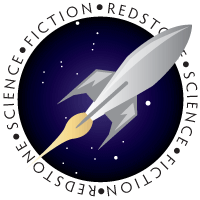
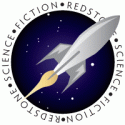





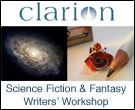


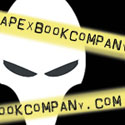
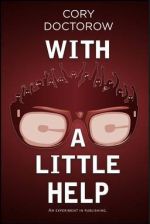
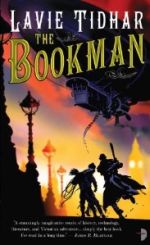
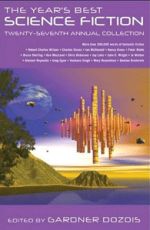


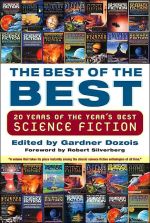
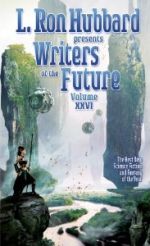

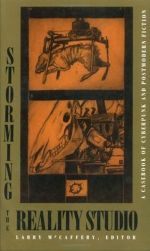



1 comment
[…] The essays this month are exceptional. Henry Cribbs takes his critical eye to the heart of literature, Shakespeare, and reminds us of how influential the Bard’s work has been on the world of science fiction – Such Stuff as Dreams are Made On: Shakespeare and SciFi. […]